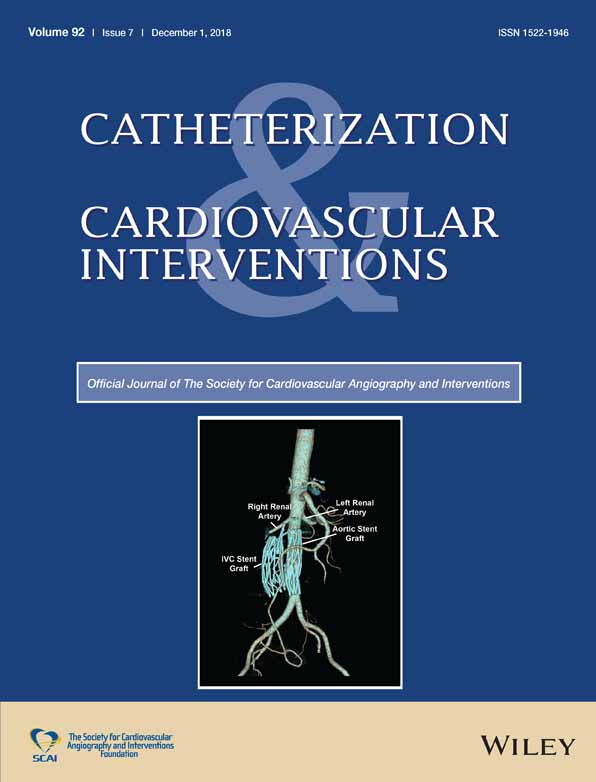Use of chronic total occlusion percutaneous coronary intervention techniques for treating acute vessel closure
Abstract
Acute vessel closure due to dissection is a known complication of percutaneous coronary intervention and can be challenging to treat, especially if guidewire position is lost. Re-entering into the distal true lumen is commonly done during chronic total occlusion interventions, as part of antegrade dissection strategies. We report two cases of acute vessel closure and guidewire position loss in which the Stingray LP system was successfully used to advance a guidewire into the distal true lumen and recanalize the occluded vessel.
CONFLICT OF INTEREST
Dr. Shaukat: none.
Dr. Mooney: none.
Dr. Burke: none.
Dr. Brilakis: consulting/speaker honoraria from Abbott Vascular, ACIST, American Heart Association (associate editor Circulation), Amgen, Asahi, Cardiovascular Innovations Foundation (Board of Directors), CSI, Elsevier, GE Healthcare, Medicure, Medtronic, and Nitiloop; research support from Boston Scientific and Osprey. Shareholder: MHI Ventures. Board of Trustees: Society of Cardiovascular Angiography and Interventions.




